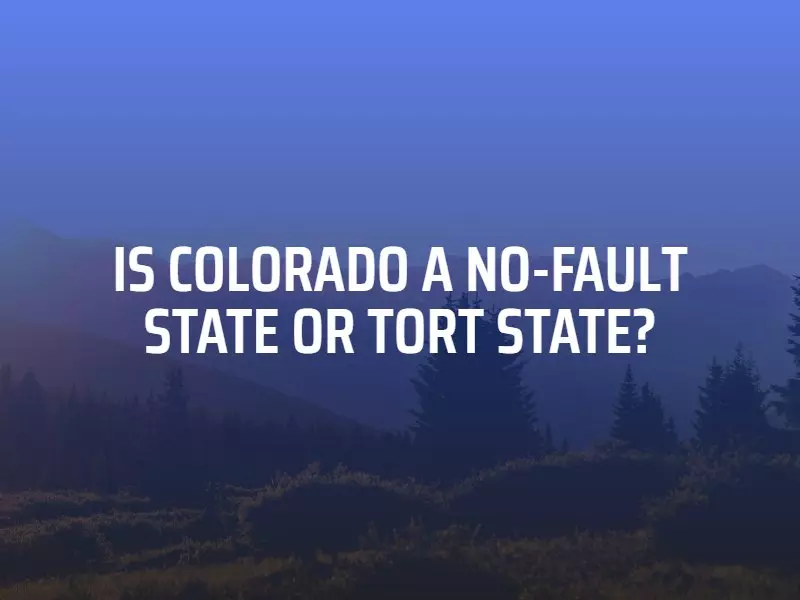Is Colorado a No-Fault State or Tort State?
When you are in an accident in Colorado, you may experience certain damages. These may include medical expenses, lost wages, and physical and emotional pain and suffering — all of which may contribute to physical, emotional, and financial damages.
In some situations, you have the right to claim compensation for these injuries through a personal injury lawsuit or insurance claim. However, the steps you have to take to obtain this compensation depends on whether or not the accident occurred in a no-fault state or a tort state.

What Is a Tort State?
Colorado operates on a traditional tort, or a fault-based, car insurance system. This means the driver responsible for your accident must pay for your damages following a collision. To uphold this financial responsibility, all drivers must carry the following minimum amounts of liability insurance.
- $15,000 in property damage per accident
- $25,000 for bodily injury liability per person per accident
- $50,000 for total bodily injury liability per accident
You have three options to collect compensation for your injuries following a Colorado car crash. You can file a claim with the at-fault party’s insurance company or your own insurance company, if the at-fault driver does not have sufficient coverage and you have the appropriate policy. You may also file a personal injury lawsuit for your damages in civil court.
What Is a No-Fault State?
A no-fault car insurance state does not require drivers who are responsible for car accidents to pay for the damages the victims of the collision incur. Instead, drivers must carry insurance to pay for their own injuries following a collision. No-fault states include Florida, Massachusetts, North Dakota, and Utah.
In most no-fault states, insurance laws require drivers to purchase personal injury protection coverage as part of their policies. If you suffer an injury in one of these states, you will have to file a claim with your own insurance company.
The laws vary from state to state, but under certain circumstances, you could also file a claim with the other driver’s insurance company if your injuries meet certain thresholds. You may be able to file a personal injury lawsuit as well.
Do You Need an Attorney for Your Accident Claim?
Whether you are in a car accident or slip on someone’s property, the at-fault party is responsible for paying for your injuries. However, convincing a courtroom or insurance representative to provide maximum compensation for these damages can be difficult alone. In these situations, a personal injury lawyer can provide a number of benefits for your case.
- Your Denver car accident attorney will have knowledge of Colorado’s tort-based system and the elements you will need to prove to establish the at-fault driver’s liability.
- Your lawyer will have access to resources and expert witnesses he or she can use to build a compelling claim on your behalf.
- You may be suffering from severe injuries following your accident and be unable to handle your claim by yourself. Your attorney will handle all paperwork and investigation so you can focus on your recovery.
- You may not know what damages you qualify for and inadvertently accept a settlement offer lower than what you need to recover. Your attorney will help you estimate your compensation amount and evaluate any offers you receive.
If you suffer injuries in an accident someone else is responsible for, contact a Denver personal injury attorney as soon as possible. Your lawyer will help you understand your legal options and seek the compensation you need to recover.